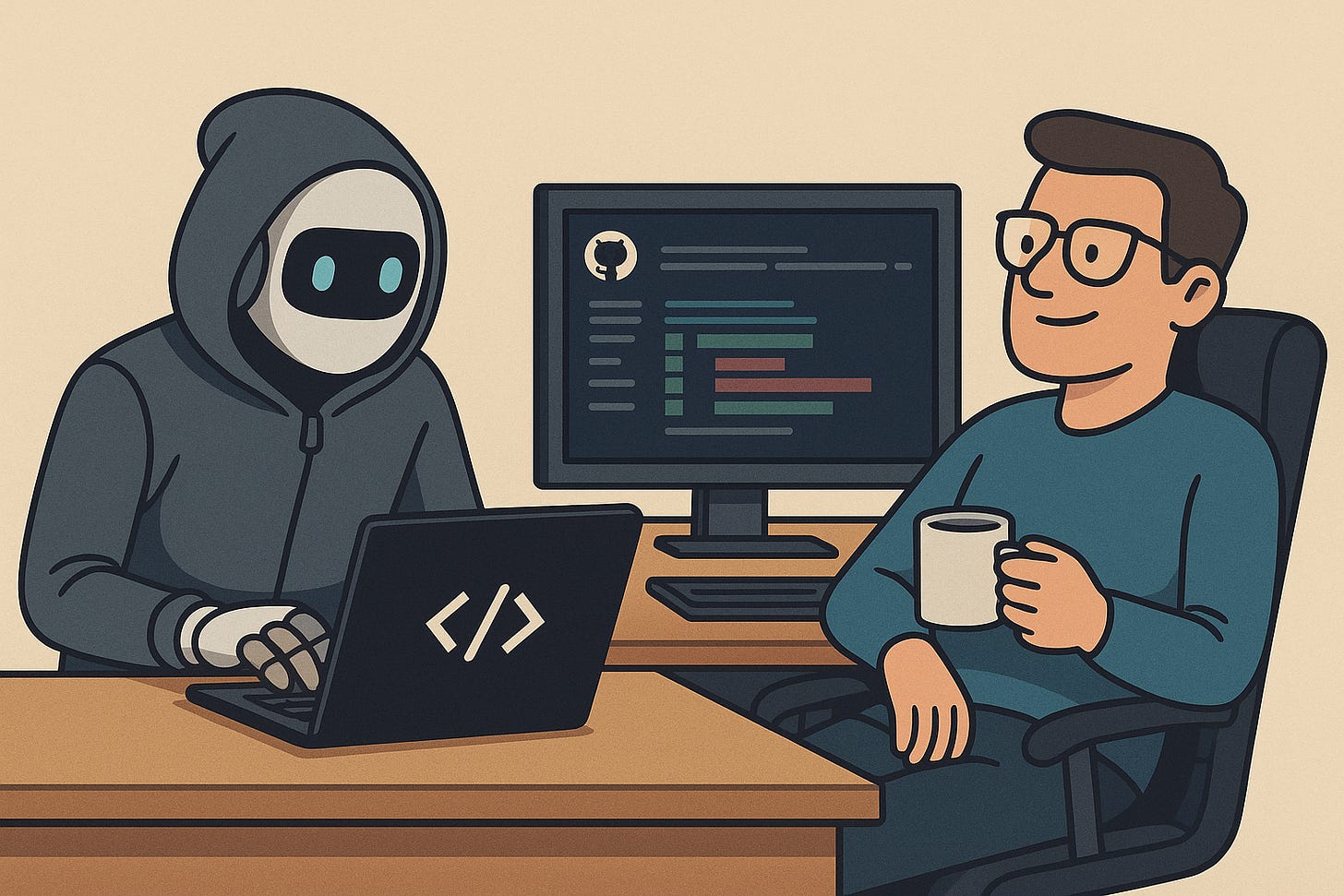Software engineering is dead. Long live software engineering.
The tools have changed. The work has changed. The job is changing.
Today, OpenAI launched Codex, a cloud-based software engineering agent.
If you're chronically online like me, your first response was an eye-roll.
OK, another coding agent? Get in line.
But here's why I'm paying attention. It's not just more of the same.
Today, most efforts to reinvent software engineering fall into three broad buckets:
Autocomplete tools like Copilot. Fast, helpful, but context-blind and execution-dumb.
Natural language code translators. Can explain or write snippets, but they can’t run anything.
Autonomous dev agents. Promising demos (Devin, Sweep), but not yet deployable at scale.
Codex is different. It runs in a sandboxed environment, reads your repo, executes tasks, validates results, and returns a diff. Not a suggestion - a deliverable.
What makes Codex different:
Autonomy, not suggestions. Codex doesn’t offer autocomplete. It runs the code, tests it, validates outputs, and shows verifiable logs and results, all tied to your actual repo.→ It shifts from copilot to contractor.
Task-based modular design. Codex introduces two primitives:
(1) Code - assign a scoped task ("Add pagination to this table")
(2) Ask - query the codebase ("How is this error handled across routes?")
Each runs as an independent job, with its own history and artifacts - enabling parallel, auditable workflows that mirror how real dev teams operate.
Verifiability and secure execution. Codex operates in a hardened, reproducible sandbox. You can see exactly what it did, re-run or revert changes, and ensure it didn’t hallucinate dangerous behavior.→ Critical for team trust and adoption in production environments.
This also pairs well with Windsurf. While Codex interprets prompts and executes tasks, Windsurf provides an AI-native IDE with the tooling to support full software lifecycle workflows.
Until now, OpenAI’s core product was the model. But models are being commoditized. Codex shifts the center of gravity from model to workflow.
It’s both a defensive move (avoid becoming a generic API) and an offensive one (own the agent runtime, IDE, and developer surface)
What does this mean for engineers?
What does this mean for engineers? It’s not quite “the end of programming,” but it is the start of a redefinition.
Orchestration > implementation: The labor shifts:
From writing code → specifying behavior
From debugging syntax → debugging reasoning
From implementation → orchestration and integrationNo Boilerplate or Glue Code. Entry-level engineering work - often seen as a rite of passage - may disappear. That’s a challenge for both training pipelines and hiring ladders.
The Rise of the “10x Engineer” as a Team Lead for Agents. The best engineers will be agent managers, meta-debuggers, and prompt architects-leading swarms of agents to get real work done.
Systemic thinking becomes the baseline. When agents can handle individual tasks, human engineers will spend more time thinking about: Systems design, Tradeoffs between abstraction layers, Governance, safety, and versioning, Human-AI collaboration patterns. Thinking like a staff engineer, even at junior levels, will be the new expectation.
Engineering is not dead, but it is mutating. Codex agents will not kill software engineering, but they will kill the idea that writing the code is the hard part.
It'll change who gets hired, how tools are built, and what work is valued. Some people will see this as a threat. Others will see it for what it is: a reorg of the entire software development process.





